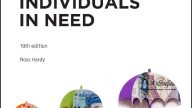Cost of living hub, Fundraising
No Minister, the cost of living crisis is definitely not over
Jay Kennedy, DSC's Director of Development and Delivery, looks closely at data from Citizens Advice and The Trussell Trust to investigate the rise in crisis support.
I was at an event hosted by Citizens Advice the other day when an expert guest speaker remarked that ‘the government thinks the cost-of-living crisis is over’. He was telling the truth but at the same time I almost couldn’t believe my ears.
Yes, inflation has fallen and energy costs are reducing slightly, but charities up and down the country know the crisis is far from over – they’re seeing the devastating and ongoing effects all over the place.
For years now, Citizens Advice has been tracking data on the type of enquiries they get and the type of advice and help they provide to people who come to them. They’ve been running monthly sessions presenting visualisations of the data. The statistics are pretty shocking and frankly disturbing.
It paints a picture of drastically rising levels of poverty and inequality over recent years. One statistic I always look out for, particularly because it’s directly relevant to some of DSC’s own research, involves something called ‘crisis support’.
This is basically when people come to the CAB and they don’t have the means to pay for food, basic bills, or other essentials. The CAB will then pass them on to, for example, a food bank, or to a source of support for help with energy bills, for example.
The data just on crisis support shows that five years ago, at the end of 2019 (incidentally when the last General Election was held), Citizens Advice helped just under 75,000 with crisis support. By the end of 2023, this had nearly trebled to just under 222,000. Further, half of the people whom the charity helps with debt advice are now in what’s called a ‘negative budget’ – where their income is less than the cost of basic essentials.
The Trussell Trust has also been leading the charge in providing evidence and data about the cost-of-living crisis. Their latest stats show that just within their network – which isn’t even all food banks – they delivered nearly 3 MILLION food parcels to people in one year. Over 1 MILLION of these parcels were specifically for children. The Trussell Trust would rightly like to do themselves out of business, but sadly that seems nowhere on the horizon yet.
Charities are providing the data and evidence which shows that the crisis definitely isn’t over, and DSC is also here to help. For decades we’ve been publishing The Guide to Grants Individuals in Need, now in its 19th edition, which is hot off the press. This publication provides details of grant support for individuals, of the type which Citizens Advice calls ‘crisis support’.
It’s not very well understood, even within the charity sector, that there are thousands of charitable grant-makers who are set up to support individuals directly, often with the kind of support that people really need in a cost-of-living crisis. In many cases this support is for specific types of beneficiaries or geographical areas, for previous employees of particular occupations, or for particular types of help.
Our guide helps you easily navigate the multiple criteria of many different funders to match the type of grant funding available with people who might need it, unlocking support for people who otherwise might not have any idea that it existed.
The latest edition of The Guide to Grants for Individuals in Need contains information on 1800 funders collectively giving around £376 million in funding, including support for things like rent, white goods and children’s school books and uniforms. It has been rigorously researched by DSC’s team of expert researchers over a period of about six months – you can find out more and get your copy here.
The government and the country can’t afford to ignore the cost-of-living crisis. For charities that are dealing with the consequences, can you afford not to have the latest data on how you can get grants to help your beneficiaries through it?



